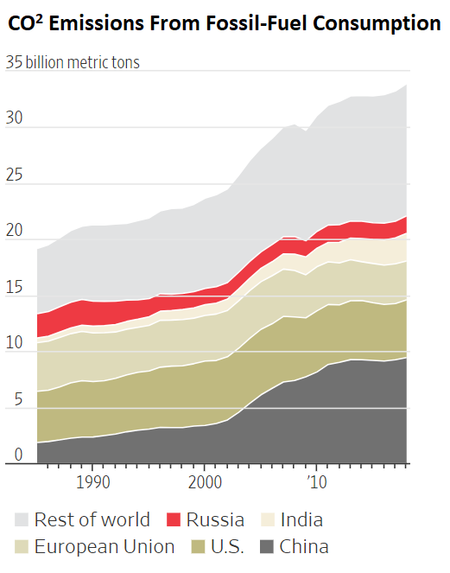Russia’s Climate Change Turn: Wall Street Journal
Russian leaders who once belittled climate change's urgency have reversed course after wildfires and floods. “Smoke from massive wildfires raging across an area the size of Belgium has engulfed hundreds of villages in Siberia – and spread as far as Seattle and Vancouver,” reports Georgi Kantchev for the Wall Street Journal. Russian scientists point to climate change and temperatures rising Russia at a faster pace than the global average. The country is the world’s largest exporter of oil and gas combined, and sales account for 35 percent of government revenues. Still, the government expects to ratify the 2015 Paris climate agreement by year's end and pursue laws capping emissions in 2022. Industry representatives insist that curbing fossil fuels will hurt business and consumers. The environment ministry reports that deaths from environmental disasters increased more than 11-fold since 2016, and Russia’s President Vladimir Putin concedes that climate change imposes steep costs. Countries and businesses that adapt to the realities of climate change, transitioning away from fossil fuels to renewable energies, innovating and demonstrating resolve, will gain competitive advantage. However, climate change's effects don't recognize borders. Businesses that refuse to reduce emissions could expect animosity. – YaleGlobal
Russia’s Climate Change Turn: Wall Street Journal
Wildfires, floods convince Putin, once skeptical on climate change, to cap emissions and join the Paris climate agreement; the energy sector remains opposed
Friday, August 23, 2019
Read the article from the Wall Street Journal about Russia reversing course on climate change.
Georgi Kantchev is a Moscow-based reporter covering Russia and the region.

(Source: BP Statistical Review, Wall Street Journal)
The Wall Street Journal
Copyright ©2019 Dow Jones & Company, Inc. All Rights Reserved.